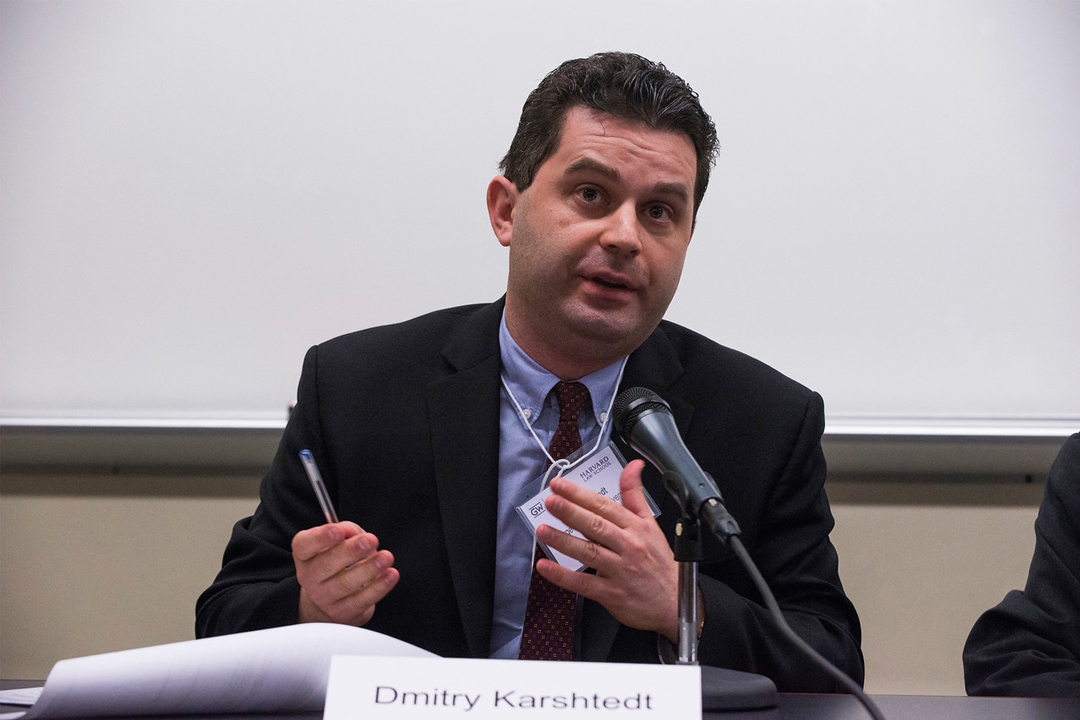Associate Dean John Whealan and Associate Professor Dmitry Karshtedt joined IP colleagues from around the globe as virtual speakers at the 2020 International IP Court Conference, organized and hosted by the Patent Court of Korea. The theme of the conference, now in its sixth installment, was Courts, IP, and Globalization. Judges, practitioners, and academics from Australia, Belgium, China, Germany, Japan, South Korea, United Kingdom, and the United States gathered to discuss topics including IP trial practice, patentable subject matter, design patents, extraterritoriality issues in IP infringement, and standard-essential patents, and the differences in the treatment of these issues by courts across these jurisdictions.
Associate Dean Whealan was a member of the Advanced Technology and Patentable Subject Matter panel, which focused on biotechnology and software patents. His co-panelists included trial and appellate judges from China, Germany, Korea and the United States. He discussed recent case law involving Section 101 of the US Patent Act and explained how the judicial exceptions disallowing patenting natural phenomena and abstract ideas have significantly affected patentability of diagnostics and software patents. Other panelists addressed procedural issues involving patentable subject matter cases and focused on the role of statutes in restricting patentability of specific classes of inventions. One topic of discussion was the patenting of diagnostics and vaccines given the present importance of innovation in this area.
Associate Professor Karshtedt participated on the panel on Cross-Border Issues in IP Infringement along with IP judges from Japan, Germany, and Korea, a practitioner from China, and an appellate judge from the United States. He discussed the presumption against the extraterritorial applications of US law, its effects on various Patent Act provisions, and examples of patent legislation that overcame the presumption against extraterritoriality. Additionally, he explained the issues involved in cross-border divided and indirect infringement, liability for supplying components of patented inventions from the United States, and the plaintiff's ability to collect patent infringement damages for harm that occurred abroad. The panelists discussed the interaction between statutory and common law involving these infringement issues and noted the significant differences between their respective countries in the treatment of extraterritorial infringement. Finally, The Honorable Kent Jordan of the Court of Appeals for the Third Circuit addressed the role of the International Trade Commission in enforcing US patents against importation of infringing products.
Although the conference involved both in-person and virtual speakers and attendees, everyone participated and interacted seamlessly in spite of the significant differences in time zones and multiple languages involved. Audio feeds were provided in Korean and English for the convenience of the audience and the panelists.


